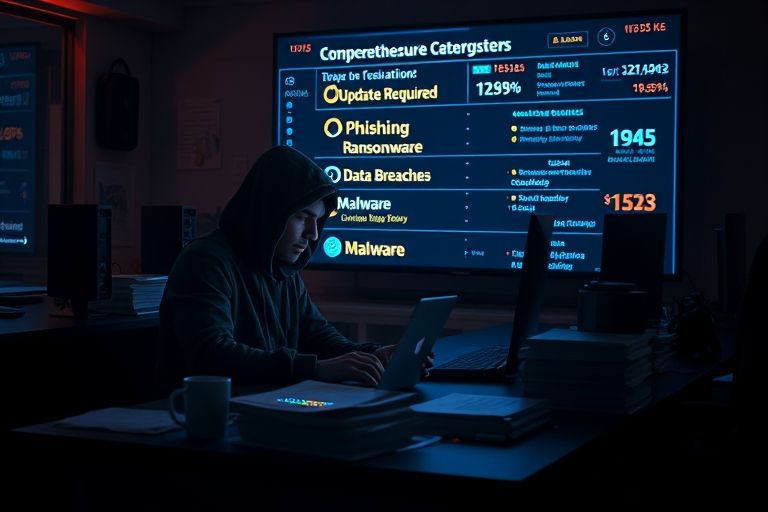
Small businesses are often seen as easy targets for cybercriminals due to their limited resources and lack of sophisticated security measures. According to a report by Verizon, 43% of cyberattacks target small businesses. As a result, it's crucial that small business owners are aware of the top cybersecurity threats they may face and take the necessary steps to protect their sensitive data.
One of the most common cybersecurity threats for small businesses is phishing attacks. These attacks involve sending fraudulent emails that appear to be from a legitimate source, such as a bank or government agency. The goal of these emails is to trick the recipient into providing sensitive information, such as login credentials or credit card numbers.
To protect against phishing attacks, it's important to educate employees about how to spot fraudulent emails. This can include looking for spelling and grammar errors, checking the sender's email address, and avoiding clicking on links or downloading attachments from unknown sources.
Ransomware is a type of malware that encrypts a victim's files and demands payment in exchange for the decryption key. Small businesses are particularly vulnerable to ransomware attacks because they often lack the resources to recover from a data breach.
To protect against ransomware attacks, small businesses should regularly backup their data and store it in an offsite location. It's also important to keep software and security systems up to date to prevent vulnerabilities that could be exploited by cybercriminals.
Weak passwords are a major cybersecurity threat for small businesses. Cybercriminals can use automated tools to guess passwords and gain access to sensitive data. In fact, according to a report by SplashData, the top three most common passwords in 2020 were "123456," "password," and "123456789."
To protect against password attacks, small businesses should enforce strong password policies, including using complex passwords and two-factor authentication. It's also important to regularly change passwords and avoid reusing them across multiple accounts.
Small businesses that rely on Wi-Fi networks are at risk of cyberattacks if their networks are not properly secured. Cybercriminals can use unsecured Wi-Fi networks to intercept data and gain access to sensitive information.
To protect against unsecured Wi-Fi networks, small businesses should ensure that their networks are encrypted and secured with a strong password. It's also important to avoid using public Wi-Fi networks for sensitive business tasks.
Small businesses may be seen as easy targets for cybercriminals, but there are steps they can take to protect against cybersecurity threats. By educating employees, regularly backing up data, enforcing strong password policies, and securing Wi-Fi networks, small businesses can reduce their risk of a cyberattack and protect their sensitive data.